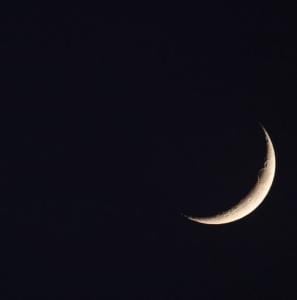Daliah Merzaban describes the experience of being undressed of the ego while turning in traditional Mevlevi whirling attire
In the past couple of years, I’ve been grateful for the opportunity to turn during our monthly global meditations on Zoom, led by our Sufi teachers and attended by friends from around the world. This has allowed me to more regularly wear the traditional Mevlevi garments donned by dervishes during the Sema, the whirling ceremony.
There’s something magical about the process of getting dressed for the Sema because, paradoxically, I feel as though I am being undressed. Despite the multiple layers of weighty fabrics a whirling dervish drapes over their body, my experience is that even weightier layers of the mental and emotional clothing are stripped away.
Learning to turn is a process of learning how to spin on my own axis with greater grace, precision and presence. This is so much about being undressed of my worldly self, and I truly experience this from the moment I place the tennure over my head after reciting the opening lines of the Quran facing the kibla, the direction of prayer. The tennure is a flowy white gown reminiscent of the shroud of the dervish’s ego. Each time I put it on, I somehow know I will not be the same when I take it off: a little more of my false self will be dissolved in the ocean of my essence.

Then around my waist I tightly wrap the tiyg-bend (meaning “sword-belt”) and try to ensure the pleats of the tennure are spread evenly around me. This isn’t always easy to do alone. Sema is traditionally a communal gathering, allowing the dervishes to help each other get dressed. As beautiful as it has been to have had virtual gatherings since the onset of the Covid pandemic, nothing can replace that sense of togetherness.
Over the tiyg-bend I place the alif-lamad, a black wider belt long enough to wrap around the waist about one and a half times. This belt represents the Arabic letter alif, which is also the number one, testifying to the unity of God. Over the tennure is a short, white, long-sleeved, collarless jacket called a dasta-gul, a bouquet of roses. Covering the whole of one’s attire is the khirka, the long black cloak that represents the covering of the grave of the ego.
Turning in this traditional Mevlevi attire is the only time in my life that I sense I am going out into the world and being seen by others while naked and bare. This is a paradox because the whirling outfit is, in actuality, quite elaborate and heavy. And yet, the more I do it, the more I discover that nothing sits more lightly on my skin. It is, in a sense, like preparing to be invisible, to wear only the light and lightness of God.
Consider these lines of Mevlana Rumi:
Those who wear clothes look to the launderer,
but the naked soul wears illumination.
Either withdraw from the naked
or take off your clothes like them.
If you can’t become wholly naked,
take the middle way
and take off at least some
of what you wear.[Mathnawi II, 3524–25]¹







